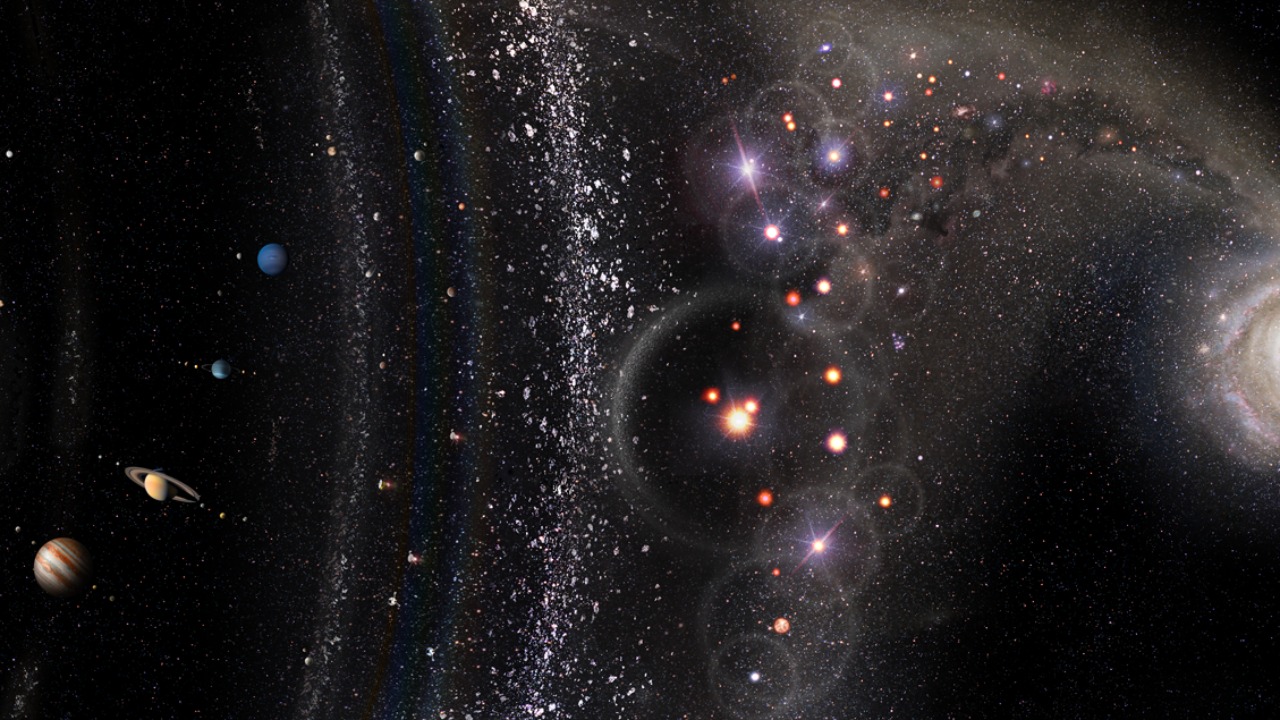
Recent astronomical and environmental discoveries have painted a picture of a universe in decline. Observations from the James Webb telescope have highlighted a crisis in our understanding of cosmic expansion, while the discovery of a doomed exoplanet offers a glimpse into the harsh realities of planetary destruction. Closer to home, shocking findings in Antarctica and a massive methane leak signal escalating environmental degradation. These revelations underscore a sobering reality: the universe, and our own planet within it, is getting worse.
Cosmic Expansion Mysteries
The James Webb telescope, a marvel of modern astronomy, has thrown a wrench into our understanding of the universe’s expansion. Observations made in December 2024 have highlighted inconsistencies in the rate of expansion, challenging standard cosmological models. The telescope’s findings suggest that the universe is growing in ways we cannot currently explain, raising profound questions about our understanding of cosmic physics.
One potential explanation for these inconsistencies could lie in modifications to our understanding of dark energy, a mysterious force thought to drive the universe’s expansion. However, such modifications would require a significant shift in our current cosmological models, and any such theories would need to be carefully vetted against the telescope’s findings.
A Doomed Exoplanet in Peril
While the James Webb telescope probes the mysteries of cosmic expansion, other astronomers have made a startling discovery of a different kind. In April 2025, they identified an exoplanet that is actively crumbling away due to stellar forces. This doomed exoplanet is leaving behind a comet-like tail as material escapes its surface, offering a stark illustration of planetary destruction in hostile star systems.
The fate of this exoplanet provides valuable insights into the processes that can lead to planetary decay. The formation of a comet-like tail suggests a violent and tumultuous end, a stark reminder of the harsh realities that can befall planets in unstable star systems.
Antarctica’s Alarming Revelation
While astronomers probe the depths of space, scientists on Earth have made their own shocking discoveries. In October 2025, a research expedition to Antarctica uncovered findings that were worse than expected. These findings, while not yet fully understood, point to escalating environmental degradation and climate instability.
The methods used in the Antarctic expedition, and the subsequent analysis of the data collected, have provided valuable insights into the state of our planet’s climate. The shocking discovery underscores the urgent need for further research and action to mitigate the impacts of climate change.
Methane’s Atmospheric Threat
Adding to the environmental concerns, scientists detected a massive methane leak escaping into the atmosphere in February 2025. Methane, a potent greenhouse gas, contributes significantly to global warming. The scale of this leak is worse than feared, signaling a serious escalation in the threat to our planet’s climate.
Detection techniques and global monitoring efforts have played a crucial role in identifying this leak. However, the discovery of such a massive methane leak underscores the need for improved monitoring and mitigation strategies to address this growing threat.
Signs of Universal Decline
These findings, both astronomical and environmental, point to a universe in decline. The November 2025 report that the universe is getting worse and worse connects these observations to broader theories of entropy and structural breakdown. The accelerating deterioration observed in both cosmic and planetary phenomena supports narratives of a universe in decline.
The interconnections between exoplanet decay and larger-scale universal entropy trends highlight the interconnectedness of cosmic phenomena. The reported worsening state of the universe has profound implications for our understanding of cosmic and planetary processes.
Implications for Earth’s Place in the Cosmos
The discovery of the massive methane leak and the shocking findings in Antarctica highlight how planetary atmospheres mirror cosmic instability. These environmental crises on Earth parallel the processes observed in the crumbling exoplanet, suggesting a shared vulnerability to destructive forces.
As we consider the long-term forecasts for Earth’s environment, we must take into account the reported worsening state of the universe. The parallels between the environmental degradation on Earth and the cosmic decay observed in the universe suggest that we are not immune to the broader trends of decline. As we continue to explore the cosmos and probe the mysteries of our universe, we must also confront the challenges facing our own planet.
More from MorningOverview